
What opportunity does Emirates see in the Indian market? How does the brand perceive the Indian consumer?
Essa Sulaiman Ahmad (ESA): The Indian skies are expanding rapidly and displaying unprecedented growth. There has been a lot of innovation from Emirates in the Indian market.
We have always looked to provide value added services with innovative products - like in-flight entertainment with over 1,500 entertainment options including movies, music and TV-on-demand; vast choice of video games, bespoke podcasts; in-seat telephony services and Wi-Fi internet access in-flight.
Additionally, Emirates also provides value adds like regionalised menu on its flights to India, chauffer services, exclusive lounges in Mumbai and Delhi and a 24-hour call centre in Mumbai open through the week.
How has the identity of the airline evolved since its launch in 1985?
Georgette Kolkman (GK): We have changed our identity several times. We have had different taglines as we graduated from a small airline to what we are currently. Our first major advertising campaign in India had the tagline ‘Keep Discovering’. We stayed for this for a whole decade, before launching our ‘Hello Tomorrow’ global campaign in April this year. This is more than just an advertising tagline, it goes very much with the DNA of our brand.
It’s supported internally by the whole organisation - and we are a very big organisation now. We have 39,000 people that work for Emirates across the network. We fly to 126 destinations, and have a fleet of 167 aircrafts. The kind of growth we have had in the last year usually takes airlines about five to ten years. And this should continue for the next two years, after which it should plateau for a bit. But we should pretty much double our size in the next five years. That’s a pretty hard and fast pace to maintain and the time was right to launch a new platform that’s going to take us forward for the next 10 years of growth.
What has the response to the ‘Hello Tomorrow’ campaign been in India?
ESA: We believe the ‘Hello Tomorrow’ campaign will give an edge to each proposition, helping the brand to become stronger. Through this new campaign, we aim to bring the world closer by not only connecting travelers across 126 destinations but also connecting cultures beyond boundaries. Our ongoing commitment to India since we began operations in 1985 is a testimonial to our growth and accolades we have received over the years.
GK: We got a resounding response to the campaign. It was the biggest global campaign we have ever run as a brand. We did a Facebook-post brand tracker and our awareness levels in a lot of the markets saw a significant increase; affinity for the brand increased as well.
The brand does see sport as a big opportunity. Along with its global tie-up with the ICC, Emirates has also tied up with the Deccan Chargers and KXIP in the IPL. In football too, it’s associated with Arsenal FC in a big way. What’s the rationale behind these associations?
GK: We are associated with a number of sporting tournaments globally. We have chosen this for our reach in global markets. In the sub-continent, we have got cricket, which is the sport that generates most interest. We have got FIFA, a global property for football. We also sponsor a lot of football clubs around Europe and our main signature sponsorship in football is Arsenal. We sponsor sailing and horse racing too. So we have got a very varying and wide portfolio of sponsorships around the globe. We invest heavily in sponsorships because we believe fans of the sport turn fans of the brand. So associating with these sporting properties is a very big part of our marketing mix.
What role has Emirates played in creating Dubai as a destination?
GK: Right from our inception as a brand, one of our biggest commercial objectives is to promote Dubai. Dubai is our hub and because of our ‘Hub and Spoke’ model we drive traffic to Dubai from across the globe. We just invested a huge amount into our new concourse dedicated for the A380 at Dubai International Airport. We have our own destination management company ‘Arabian Adventures’ that manages a number of airlines and brings traffic into Dubai. We work very closely with the commerce and tourism marketing bodies and the government of Dubai for big events such as the Expo 2020.
Emirates has been perceived as a State-run Airline, while it isn’t. How has that perception impacted the evolution of the airline?
GK: We get this all the time. It is wholly untrue. We are not funded by the government. The government is a stakeholder and is our main shareholder and we obviously are accountable to them, but we are not funded by them. We are funded independently. We made a profit in 2001, and since then we have never stopped making profits.
How much do non-UAE sectors contribute to the traffic today?
GK: Along with the UAE, UK and Australia are our major markets. We are pretty big in India too. China is becoming big and should be a major market soon. We are getting pretty big in Africa also.
Marketing budgets have been squeezed, across airlines, in turbulent times. How has Emirates marketed itself in tough times?
GK: We have always believed in our brand and we tend to do well when everyone else is lagging. We are very confident about our brand and we don’t get too unsettled by economic crisis and things that are out of our control. We have always been very steady in investing in the brand and we believe in the power of the brand. We budgeted for it, and we knew what it would cost. The time was right for us to launch the campaign and invest the money.
What per centage of marketing budgets go into digital? How big is digital ticketing?
GK: We have seen a steady increase in share of digital in the mix compared to other media. I would reckon that we spend approximately 15 per cent of our budgets on digital marketing, which includes social as well as search engine marketing. Ten per cent of our ticketing comes through digital in India.
Is Emirates looking at any association / tie-up with another airline in India?
ESA: Emirates has no plans to acquire a stake in another airline in India or anywhere else. We are busy focusing on the many aspects of our own growth including the launch of flights to new destinations in the coming months.
Reports suggested that in June 2012, Emirates had a 20 per cent market share. What is the current market share it commands in India?
ESA: We cannot comment on market share as we do not have access to that data. Emirates operates 185 weekly flights to 10 Indian destinations which is the largest by any international airline. We are witnessing a growth of two to three per cent in the Indian market and our 185 weekly flights are seeing load factors of approximately 80 per cent. Currently, we are utilising all the rights given to us.
Emirates is a lot more than just the airline. How have elements like Emirates Holidays helped establish the brand? How much does non-airline revenue account for?
GK: Emirates Holidays is a tour operating arm of the airlines. It’s an independent revenue stream that supports the airline. We have Emirates Holidays worldwide, but our main distribution streams come from the Middle-East, India, parts of Africa and that’s to do with how we have set up in different countries. In the markets we are present in, Emirates Holidays has a good reputation. All our sibling brands whether it is SkyCargo, Emirates Holidays or Skywards, contribute very much to the overall brand image and presence. Emirates Skycargo contributes a big proportion of our revenue. We are the third largest cargo carrier in the world.
We’ve seen Emirates use radio advertising in India over the past few months. What’s the idea behind this?
ESA: We believe in adapting a 360-degree means of communication that reaches out to all our customers. Radio is one of the best non-intrusive ways of connecting with an audience today. It reaches out during peak hours and allows us to share and support listeners’ interests and build a closer relationship.
What is Emirates’ plan for the festive season this year? Any marketing efforts lined up?
ESA: We have tactical fares throughout the year for periods such as weekdays, weekends and during special holiday periods. Emirates also pushes the Dubai Stopovers Offer (DSO) offering travelers the chance to stay in Dubai at heavily discounted rates and we will be coming out with attractive packages for the Dubai Shopping Festival (DSF) in January February 2013, as well as new route launch offers, which include a complimentary stopover at Dubai for First and Business class passengers.
Low budget airlines like IndiGo have started with international flights. How does this affect Emirates? Are there plans to combat it?
ESA: We take all competition seriously, but we do not spend a lot of energy monitoring it. We believe we are best served by developing our own strengths. Our approach has been to find out what customers want, and to focus on delivering it. We continually challenge ourselves to set new service standards and offerings
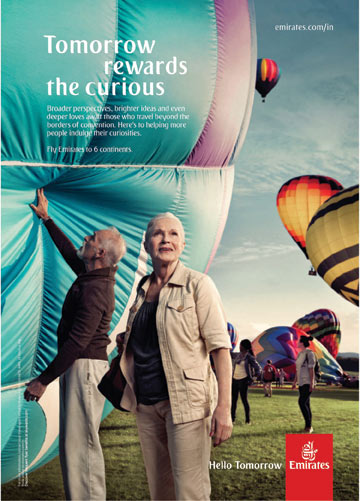
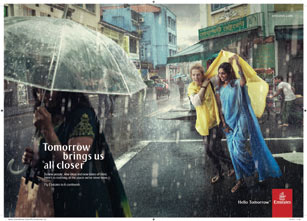


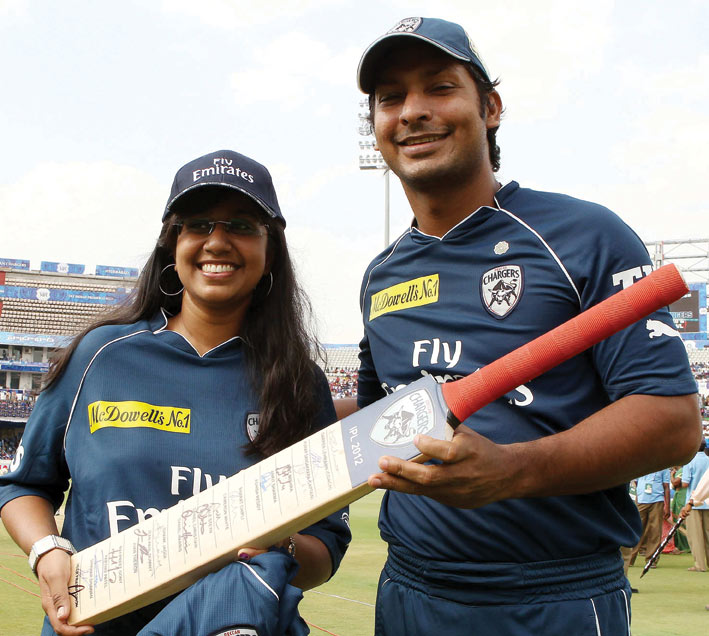
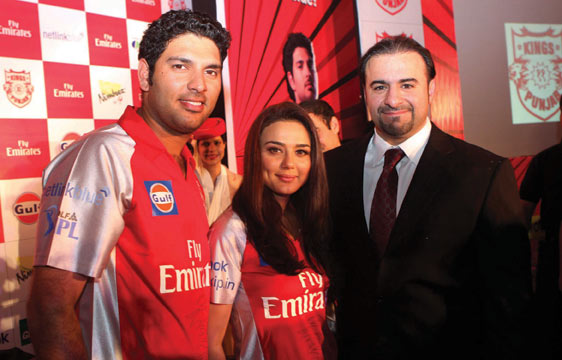
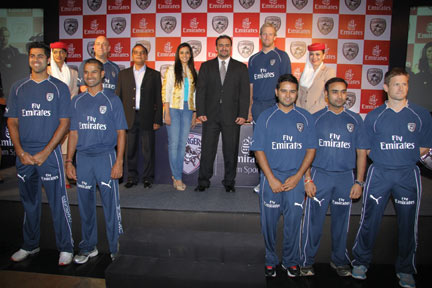
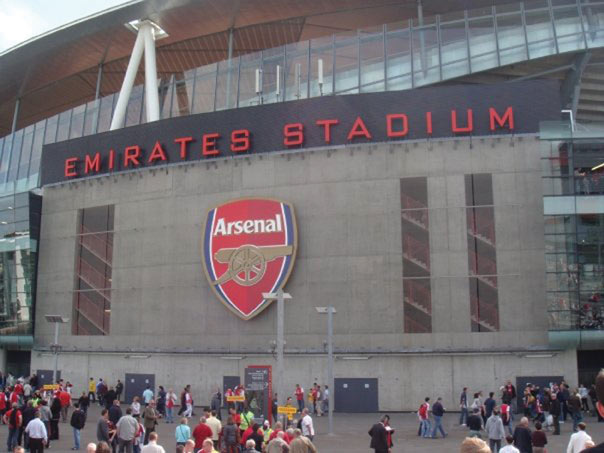





.jpg&h=334&w=500&q=100&v=20170226&c=1)





.jpg&h=268&w=401&q=100&v=20170226&c=1)


.jpg&h=268&w=401&q=100&v=20170226&c=1)
